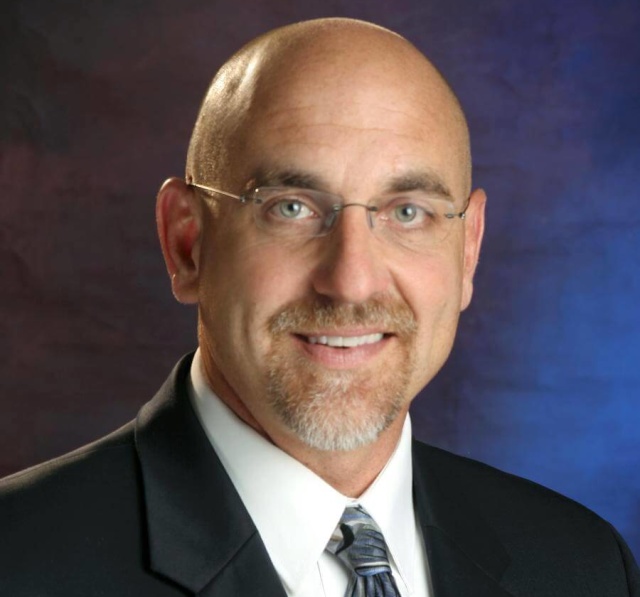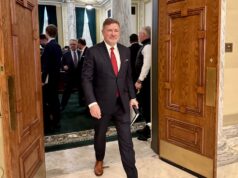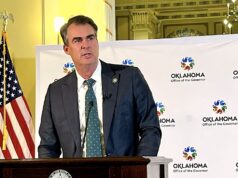
Twenty years of working within the system to improve Oklahoma City’s schools has convinced me that there is plenty of blame to be shared, but the real problem is our playbook, not the players. Too often, that playbook is imposed on schools by non-educators. Moreover, the single biggest mistake made by under-the-gun urban districts is that they make unforced errors by rushing programs into place without taking the time to think them through.
So before offering some preliminary thoughts on the planned resignation of OKCPS Superintendent Rob Neu, I should acknowledge some biases.
I still stand by the principle of the “loyal opposition.” Educators should see our opponents as opponents, not as enemies; however, I can no longer defend my other belief that, while finances may be a huge problem, better policies are the key to making a significant difference.
It is now clear that even the best policies and leadership will fail to improve the OKCPS until more money is invested in high-poverty schools.
Chronically absent students need socio-emotional supports
That leads to the first issue we must face while preparing for a potential superintendent transition: There is a large body of social science that explains why leadership, improved instruction, data and accountability are not enough to produce meaningful improvement in our 90 percent low-income school system.
The Consortium on Chicago School Research’s Organizing Schools for Improvement presentation explains why high-challenge Oklahoma City schools cannot be turned around without first creating an aligned and coordinated set of student supports. Creating these socio-emotional support services will require as much planning, time, money, trial and error as was committed to the doomed curriculum-driven, test-driven reforms of the last decade and a half.
Even though the building of mentorship and counseling teams is a far more worthy goal than increasing test scores, it is also a tougher task. As Stanford’s Larry Cuban explains, the nation took the shortcut of “deputizing” individual administrators and teachers as the heroes who could supposedly transform our schools. We would have never tried that dubious quick fix if it wasn’t so hard to organize the team effort that is really needed to improve schools.
The Consortium also predicted why Superintendent Neu’s laudable effort to reform the district’s code of conduct was undermined by a lack of resources as well as a lack of time for careful planning and deliberate implementation. Organizing Schools for Improvement identified the intertwined factors of discipline and attendance as prime reasons why troubled schools fail to improve.
When the Consortium looked deeply into stalled reforms, its “most powerful single finding” was the relationship between attendance problems and the failure to manage disciplinary issues. Moreover, the Consortium “found virtually no chance of improving attendance in schools that lacked safety and order” nor “where instruction alignment was weak or predominantly basic skills oriented.”
In other words, no single shortcoming is likely to be fixed without also tackling intertwined problems and maddeningly complex challenges. Chronic disorder and sporadic violence are the biggest obstacles to improving the OKCPS, and they are interrelated with the structural barriers that keep too many students from attending school regularly. The chronic absenteeism Oklahoma City and Tulsa face is crippling.
Rob Neu, like some of his best predecessors, seemed too good to be true. He displayed the charisma necessary to lead the system out of the test-sort-reward-and-punish wilderness. Neu showed sensitivity to the long-neglected Hispanic community and recruited teachers who spoke Spanish. He called on all of us to wrap our arms around our students, and he did so in a way that could have been a first step toward full-service community schools that offer “wraparound services.”
From conversations to commitments
Second, Mr. Neu helped lead the community meetings, named The Great Conversation, which contributed to the district’s new plan, The Great Commitment.
We must now move from great conversations to the practical quest for the Band-Aids necessary to survive the next couple of years. School system leaders tend to be congenitally allergic to making such an admission, but our near-term goal must be keeping our heads above the water.
We’re not just facing $30 million in budget cuts. We’re not just facing angry patrons who rightfully complain that children are being ill-served. We must also acknowledge the hidden cost of the hugely expensive and doomed policies that have been foisted upon us by the federal government (and, for four years, by the state government).
Teachers and administrators are flat-out exhausted.
Don’t put the ball on the ground
Education leaders are expected to mount the bully pulpit and to inspire our grandest dreams. Yes, we need a humane, democratic and just vision of education. On the other hand, we must face reality.
The fact is that the next couple of years will be tough. Now is the time to take a deep breath, slow down, simplify our playbook and reduce mistakes. We should learn from football coaches who know that the key to victory is “don’t put the ball on the ground.” Let’s pull together to devise pragmatic methods of minimizing the damage that is inevitable due to the budget crisis. Then, we can leverage that unity — and realism — and seek the resources for building a learning community.
I had hoped that Neu could help unite the district and that, together, we could seek the out-of-state funding necessary to shift from the failed instruction-driven, test-driven playbook. As John Merrow said, we could then make education a “team sport.”





















